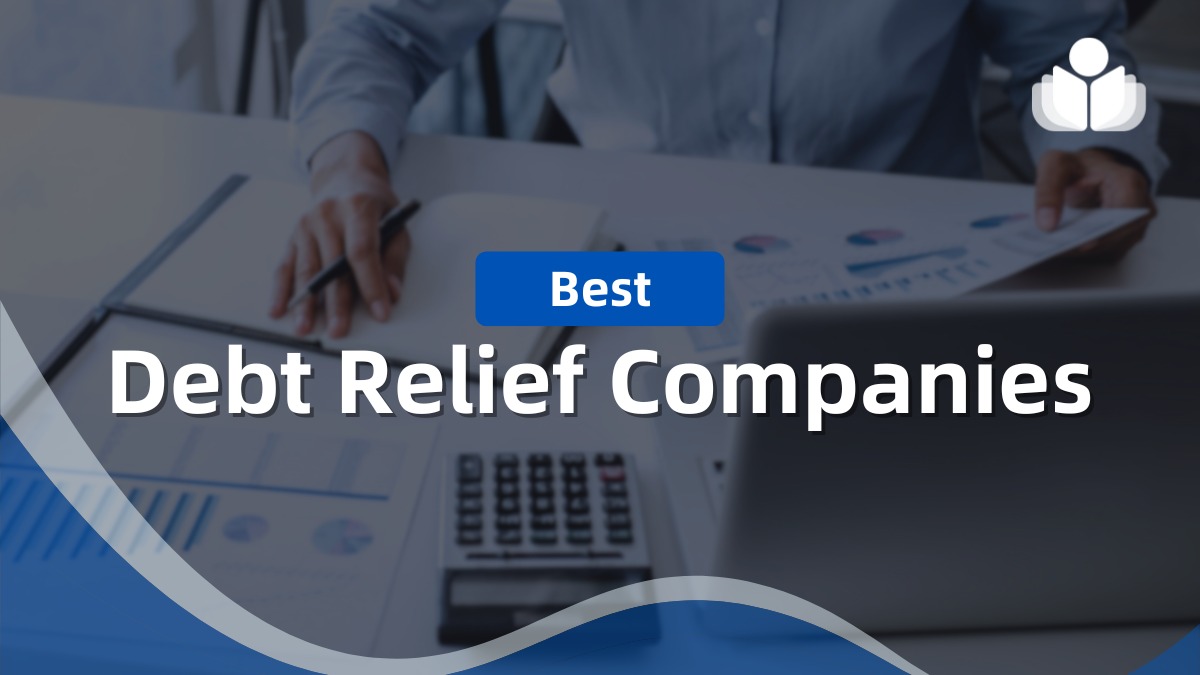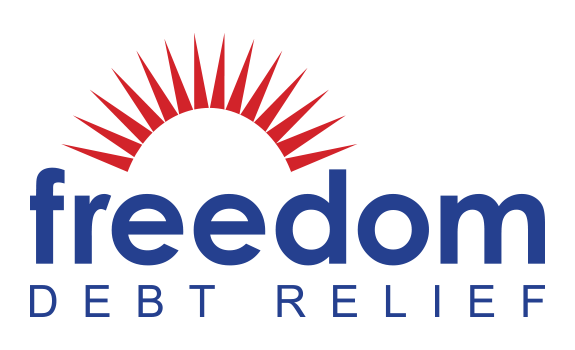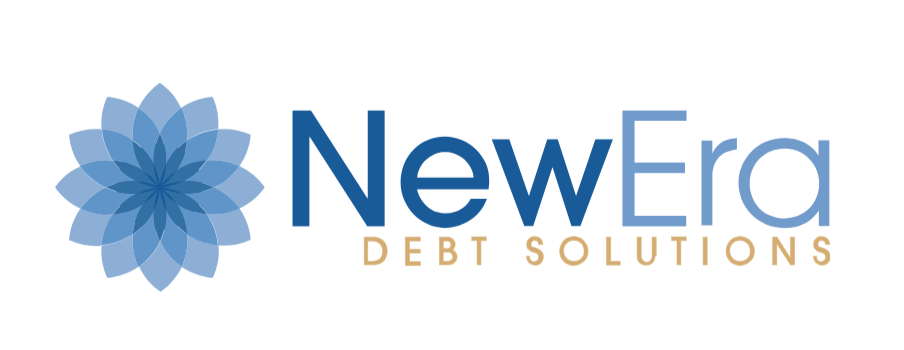If you’re among the many Americans with a piece of the $1.08 trillion in credit card debt or part of the 8% who have fallen behind on payments, finding a solution could mean breaking free from a cycle of financial stress and stepping into a new chapter.
That’s where debt relief companies come into play. These companies step in to negotiate with your creditors, aiming to cut down the total amount owed and set up a manageable repayment plan. This approach offers a pathway to regain control of your finances and start fresh.
They might use tools like lowering balances, negotiating interest rates, or consolidating debt. However, choosing the right debt relief provider is crucial. Below are our top recommendations for debt relief companies, selected based on various key factors.
>> Best for People With Over $20,000 in Debt >>
7 Best Debt Relief Companies
Freedom Debt Relief – Best Overall for Debt Relief
Freedom Debt Relief stands out as our top choice for debt relief services. With decades of
experience, the company has resolved over $15 billion in debt for over 850,000 clients in the past 20 years.
It boasts an A+ rating from the Better Business Bureau (BBB) and a customer feedback score of 4.49 stars. Notably, there are no complaints on file with the BBB, and it holds an impressive 4.6-star rating on Trustpilot from nearly 43,000 reviews, reflecting high levels of customer satisfaction with its service outcomes.
Freedom Debt Relief specializes in helping with unsecured debts such as credit card balances, personal loans, and medical bills. Their approach involves negotiating with creditors to reduce the total amount owed, aiming to help clients become debt-free.
For those with at least $7,500 in debt, the company typically resolves debts within two to five years. Fees range from 15% to 25% of the enrolled debt, but there are no upfront costs, and you won’t pay anything until a settlement is agreed upon.
Pros
- No need to pay anything upfront
- Over $15 billion in debt has already been settled
- An easy-to-use dashboard lets you monitor settlement progress
Cons
- Services aren't available everywhere
- Settling debts can hurt your credit score a lot
- The process might drag on for up to 48 months
>> More Than $18 Billion in Debt Resolved >>
National Debt Relief – Best for Fee Transparency
National Debt Relief is an excellent choice for addressing private student loan debt. It’s a popular option with a massive debt resolution and a large client base. The company’s availability during late hours and weekends makes it convenient for new clients, though these extended hours aren’t available for existing ones.
Like the other options on our list, they don’t charge any upfront fees, and their performance-based pricing model aligns with your financial interests. Boasting over 75,000 five-star reviews, National Debt Relief ranks among the highest-rated debt relief companies.
Their debt arbitrators are certified by the International Association of Professional Debt Arbitrators (IAPDA) and work directly with creditors to reduce clients’ overall debt. They’ve successfully resolved over $1 billion in unsecured debts.
You won’t owe National Debt Relief anything unless they settle your debt and you agree to the settlement terms. Once you make a payment toward a settled debt, they will then collect their fee. Typically, this fee ranges from 15% to 25% of the total debt enrolled.
For instance, if you enroll $25,000 in credit card debt, expect to pay between $3,750 and $6,250 in fees. This amount will be deducted from your Dedicated Account.
Pros
- More than $1 billion in unsecured debt resolved
- You won't have to pay unless a settlement is reached
- Holds an A+ rating with the Better Business Bureau
Cons
- Fees tend to be on the higher side
- Services aren't offered in all states
- Extended customer hours apply only during onboarding
>> Helping People Overcome Debt Since 2009 >>
Pacific Debt Relief – Best for an Established Track Record
Pacific Debt Relief is an excellent choice for those who value customer service. On Trustpilot, 84% of its 1,456 reviews are 5 stars, and another 11% are 4 stars. Most reviewers rave about the company’s customer service, which is great.
When you’re dealing with debt, one of life’s toughest challenges, having a supportive person on the other end to guide you can make all the difference, helping you feel less alone and see a way forward.
The company also uses new technology to simplify communication between clients and its team, which makes managing cases more efficient.
Their team gets regular training on best practices and negotiation tactics for dealing with creditors. Pacific Debt Relief doesn’t charge any upfront fees, and costs range between 15% and 25%, depending on your location and the amount of debt you owe.
Pros
- No upfront costs to get started
- Regular updates from your account manager every few weeks
- Boasts an A+ rating from the Better Business Bureau
Cons
- Services aren't accessible in every state
- Participating in the program might lower your credit score
- Requires at least $10,000 in unsecured debt to be eligible
>> Pacific Debt Relief: 20 Years of Dedicated Service >>
Accredited Debt Relief – Best for Quick Resolution
Accredited Debt Relief is dedicated to helping clients become debt-free within 24 to 48 months. They offer free consultations to educate clients, and their fee structure is performance-based, meaning you only pay if they successfully reduce your debt. This way, you’ll only spend money on a program that delivers results.
When you consolidate debt through Accredited Debt Relief, they connect you with affiliates offering loans with Annual Percentage Rates (APR) ranging from 4.9% to 35.99%. Besides the APR, there’s an origination fee of 1% to 6%. The service fee, around 25%, depends on the loan’s success.
On average, clients pay about 55% of their enrolled debt before adding fees. However, the additional fees may reduce the total savings.
Pros
- No upfront payments required
- More than $1 billion in debt successfully settled
- Holds an A+ rating with the Better Business Bureau
Cons
- Charges tend to be relatively high
- Services aren't offered in every state
- Creditors might still pursue lawsuits or collections
>> Join 500,000+ Clients Who Found Debt Relief Success >>
Money Management International – Best Nonprofit for Debt Relief Help
MMI tops our list of debt relief companies due to its proven success, positive consumer reviews, and solid reputation. There’s a lot to weigh for debt solutions, like how it might negatively impact your credit score.
MMI stands out as a full-service organization offering credit repair solutions, ideal for those considering gaining financial freedom.
The best part? MMI is a nonprofit, so it prioritizes your financial well-being over chasing profits. Its focus is helping clients achieve long-term financial stability, which sets it apart from many other debt relief companies operating for profit.
You’ll pay a setup and monthly fees with an MMI debt management plan. These fees depend on the debt you’re paying off and where you live. MMI says clients pay about $25 monthly and a $33 setup fee.
MMI also caps fees, which is another great benefit. You won’t pay more than $75 to set up your plan or more than $59 monthly in fees, regardless of your debt amount or location.
Pros
- Operates as a nonprofit
- Access to services 24/7
- Over $10 billion in debt has been repaid through the program
- Clients often experience an average credit score boost of 85 points within four years
Cons
- Not all creditors may participate
- Expect a temporary drop in your credit score due to closed accounts
- 24/7 support is available by phone, but physical locations aren't in every state
>> MMI: Counseled Over 2.5 million People >>
CuraDebt – Best for Tax Debt Relief
CuraDebt offers tax debt relief, a service not commonly provided by other debt settlement companies. Its specialized tax team includes IRS-credentialed enrolled agents.
With free initial consultations, clients can explore their options with no upfront costs. With over 20 years of experience, CuraDebt is a dependable option for those looking to manage and reduce their debt.
While CuraDebt offers limited customer support hours (Monday to Friday and Saturday), it remains fairly accessible through a live online chat feature on its website. Customer reviews are generally positive, with a 3.3 out of 5 rating on Trustpilot and a 4.8 out of 5 on the BBB.
The core appeal of CuraDebt is its debt settlement services, which, like other companies, come with no upfront fees. You’ll stop paying creditors directly and instead make monthly payments into a third-party account to build a settlement fund. However, CuraDebt doesn’t specify any fees associated with this account.
If the company successfully settles any of your debts, a fee will be charged from 15% to 25% of the original debt amount.
Pros
- Assists with various types of debt
- Features live chat support for convenience
- Accredited by both the AFCC and IAPDA
Cons
- Services are limited to 26 states and D.C
- The website can be confusing and looks outdated
- Charges settlement fees based on the original debt amount, not the final settled amount
>> Helping People Overcome Debt Since 2000 >>
New Era Debt Solutions – Best for After-Hours Customer Service
New Era Debt Solutions follows a performance-based fee model, so you only pay fees once a settlement is reached. There are no monthly administrative fees, and you won’t be charged for services not yet provided. New clients can reach a debt specialist from Monday through Saturday until 8 p.m. PT or by appointment.
This company is a strong choice for those seeking a straightforward and effective way out of debt. New Era Debt Solutions doesn’t sugarcoat the realities of the debt relief process. Instead, it provides clear, honest information that many other companies might avoid.
Their website has an entire page dedicated to these hard facts, covering details like average settlement amounts, reasons clients may leave before completing the program, and the typical time to complete the program.
This transparency helps clients make well-informed decisions, building trust and credibility. Their team of debt specialists customizes settlement strategies to suit individual financial situations. They partner with the Consumer First Legal Network, which offers further reach and access to legal guidance when needed.
Pros
- No upfront fees are required for any services
- Tailored debt relief programs to fit your unique needs
- Maintains an A+ rating with the Better Business Bureau
Cons
- Services aren’t offered nationwide
- Your credit score may take a hit
- Rates and fees lack transparency
>> Over $275,000,000 Debt Settled Since 1999 >>
Best Debt Relief Companies – Buyer’s Guide
What to Know About Debt Relief Companies
First, it’s essential to understand that debt relief companies can only negotiate some types of debt. Debts backed by the federal government or collateral, like federal student loans, mortgages, and auto loans, are generally ineligible for relief.
Some private student loans might qualify, depending on your situation and the debt relief company’s policies. Most debt relief companies also require you to face significant financial hardship, such as a divorce or a job loss, before they consider you a client.
While debt relief can help you get out of debt, it’ll likely cause your credit score to drop initially. This happens because you’ll redirect that money into an FDIC-insured trust account instead of making regular payments to build up a settlement fund.
During this time, payments are missed, and collection calls may continue. Creditors are less likely to negotiate if you’re still making timely payments. Remember that you don’t need a debt relief company to deal with creditors. Many online resources can guide you through the process on your own.
But if you’re uncomfortable negotiating or unsure of the legal details, having an expert handle it can save you time, money, and stress, helping you avoid agreeing to unfavorable terms or misunderstandings.
>> Free & No-Obligation Evaluation >>
How to Choose a Debt Relief Company
Selecting a debt relief company requires careful consideration to avoid ending up in a tougher spot than you’re already in. Here are some key questions to ask when evaluating potential companies:
- Do any industry organizations accredit the company?
- Does it share its success rate, and what about its failure rate?
- What fees does it charge?
- How long does the program take?
- How will you be informed about the progress of your settlements?
- Does the company have its legal team, or do they use external legal services?
Watch Out for Debt Relief Scammers
The sad reality of the debt relief and credit repair industries is that scammers often target people in desperate situations. These scammers prey on those looking for a quick way out of overwhelming debt by making promises that sound too good to be true.
Watch out for companies that ask for money upfront (the FTC prohibits this), claim your credit score won’t drop (it likely will if you’re settling), or promise to settle your debt for a fraction of what you owe (it’s not that simple). Scammers may also use robocalls to reach out to people in debt.
To protect yourself, ensure the agency you’re considering is accredited and has a solid track record. Do your research on websites like Trustpilot and the BBB. Look up the company’s name and website for negative reviews or lawsuits.
Remember, a legitimate debt relief company won’t require an upfront payment or guarantee to stop all debt collection calls. And if their promises sound too good to be true, they probably are.
>> Track Your Debt Relief Progress 24/7 >>
Frequently asked questions
In the short term, your credit score will almost certainly drop. This is because you’ll stop making payments on your debt, which credit bureaus will mark as missed payments. Instead, you’ll be putting that money into an FDIC-insured trust account to save up enough to negotiate a settlement.
Once there’s enough money in that account, the debt relief company will use it to settle your debt. In the long run, however, your score will likely improve as the missed payments disappear from your record and your overall debt decreases.
No, it’s against FTC regulations for a company to charge any money before settling your debt. Instead, debt relief companies take a fee based on the amount they successfully negotiate for you. Usually, this fee ranges from 15% to 25% after a settlement is reached.
You’ll likely keep receiving collection calls while working with a debt relief company. This happens because you’re missing payments, and creditors are legally permitted to keep trying to collect the debt you owe.
Debt relief can take several forms, all aimed at reducing or eliminating what you owe. Debt relief companies usually negotiate with your creditors to lower your total debt. They’ll also help create a more manageable payment plan, often with a reduced interest rate.
>> More Than $18 Billion in Debt Resolved >>
Conclusion – Best Debt Relief Companies
Always do your homework before partnering with any financial company, including debt relief firms. The Consumer Financial Protection Bureau (CFPB) recommends contacting your state attorney’s office and local consumer protection agency to see if there are any complaints against the company you’re considering.
Suppose a debt relief company has a solid track record, and you feel confident in their services. In that case, they can help you overcome your financial difficulties, negotiate lower debt amounts, and ease your debt burden.
>> Freedom: Debt Resolution Leader for 22 Years >>




